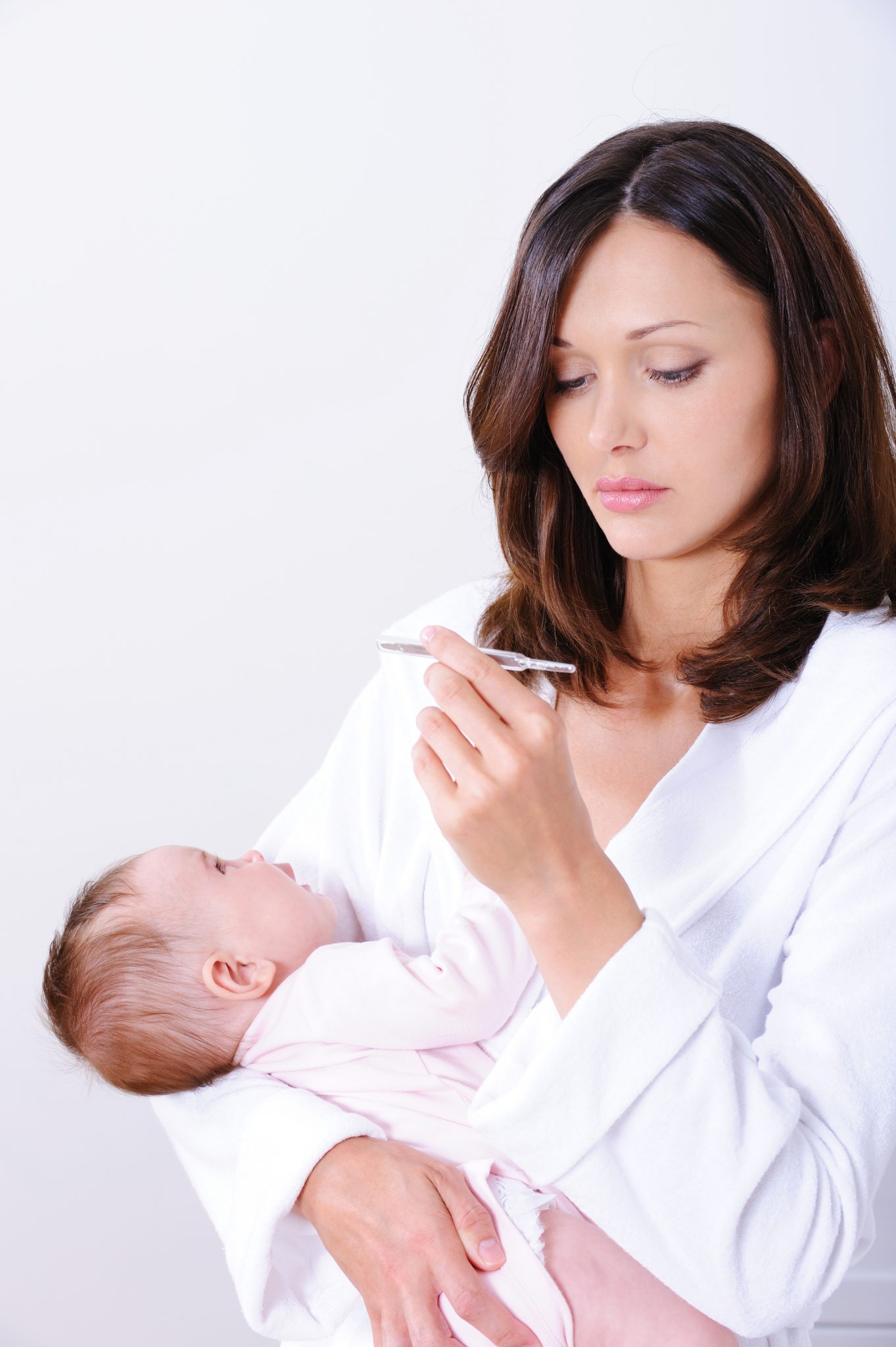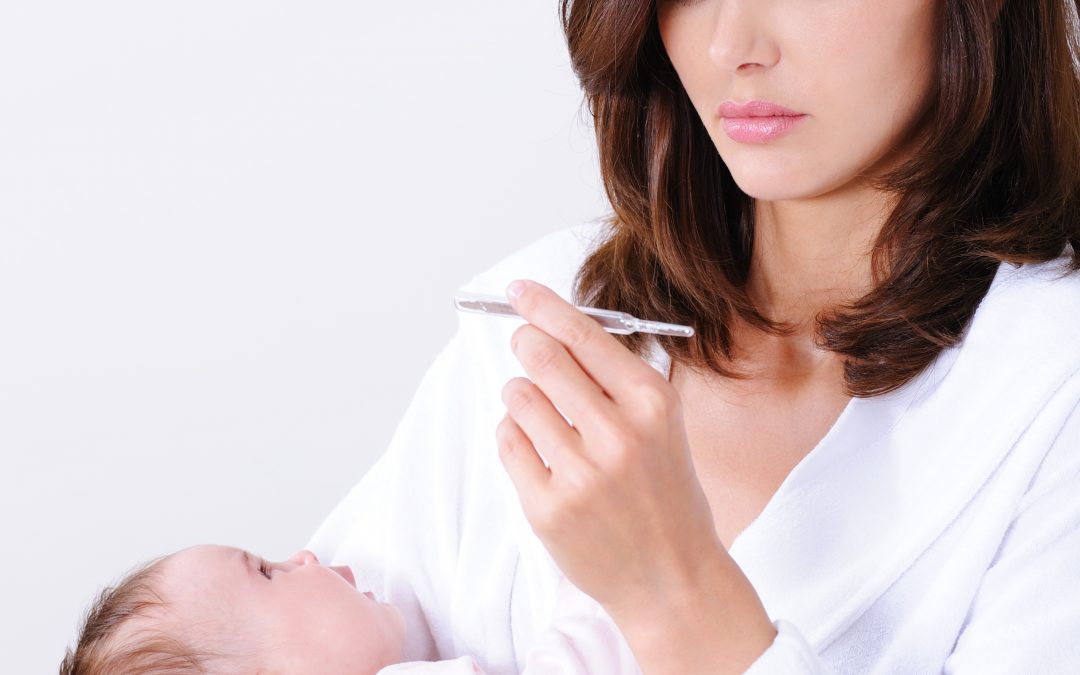
The fall and winter months are quickly approaching, and along with the holidays and traditions, they bring the possibility of getting the flu or a cold. While it’s always a good idea to take precautions to prevent yourself from getting ill, it becomes especially necessary when you have a new baby. Studies show that children under the age of two who get the flu are at an increased risk of complications. Keep yourself and your new baby safe this cold and flu season, and learn what to do if you should get sick with these tips.
Advice for Keeping You and Your Baby Healthy
There are many different strains of the influenza virus, commonly known as “the flu.” Even if you’ve had the flu, you may be exposed to a different strain, which can cause you to become ill once more. The flu virus spreads by droplets made when someone coughs, sneezes or talks. These droplets can land on common surfaces, such as door handles or tables. When another person touches these surfaces and then touches their nose, eyes or mouth, the germs can enter their body and cause the flu virus to infect their body.
The best way to keep you and your baby from getting the flu is by taking preventative measures:
- Wash, wash, wash. Wash your hands after grocery shopping, touching shared surfaces, after making a visit to your older child’s school, etc. Keep a bottle of hand sanitizer nearby for times when you can’t run to the sink to clean your hands.
- Cover your mouth with a tissue or the crook of your arm when coughing and sneezing. If you don’t have one nearby, turn your face away from your little one when the urge to cough hits.
- Avoid touching your eyes, nose and mouth.
- Regularly disinfect surfaces that everyone touches, such as doorknobs and light switches, with disinfectant wipes.
- Make a habit of washing your hands as soon as you get home from work, and ask your other children to wash their hands as soon as they get home from school.
- Keep your baby away from those who are sick. As a mom, you will soon develop a thick skin when it comes to defending and caring for your child. It can be hard at first to ask people not to touch or hold your baby, but explain kindly and firmly that you are trying to keep your baby from getting sick and that you would love for them to hold your little one as soon as they are healthy. People will understand, and if they don’t, it’s more important to protect your baby than it is to protect another’s feelings.
- Practice healthy habits such as getting enough sleep, eating several servings of fruits and vegetables each day and drinking plenty of fluids.
Breastfeeding and Getting the Flu Shot
The flu shot contains an inactivated or dead flu virus. Exposing your body to the particular virus strain will help your body to produce antibodies to fight the flu should you be exposed to it. It is safe for you to get the flu vaccine while breastfeeding and for babies who are six months and older to get the flu vaccine. Getting a flu shot will help prevent you and your little one from getting the flu and may pass the antibodies you make onto your child through your breast milk to strengthen their immune system.
Symptoms of the Flu
Even if you are as careful as possible, there is always a chance that you could contract the flu virus. Look for the following symptoms in yourself and your baby in order to diagnose it as soon as possible:
- Fever
- Chills
- Runny or stuffy nose
- Sore throat
- Headaches
- Body aches
- Fatigue
- Dry, hacking cough
Your baby may act extremely irritable, refuse to eat and may have diarrhea and/or vomiting in addition to these symptoms.
How Getting the Flu Affects Breastfeeding
If you get the flu while you are breastfeeding, don’t be afraid of passing the virus to your little one. One of the best things you can do is continue to nurse your baby. Doing so will pass on the antibodies that your body is making as it fights the flu on to your little one, helping to prevent them from becoming ill. Wash your hands before picking up your baby, wash your breasts before nursing and avoid coughing and sneezing near your little one.
If your little one has the flu, it’s also important to keep breastfeeding him or her. He or she will need the fluids and nutrition to help their body fight the virus. If your little one isn’t up for eating or is having a difficult time sucking due to a stuffy nose, try using a breast pump. Using a breast pump will help you maintain your supply. The milk pumped can then be offered in a cup, syringe or eyedropper to ensure that your baby stays hydrated.
Flu Treatment for You and Your Little One
For You:
- Drink plenty of fluids.
- Get plenty of rest.
- Allow other family members and friends to help with your little one.
- Ask your doctor about taking antivirals, which can help reduce flu symptoms and the length of time you have the flu.
- Take pain medication, such as acetaminophen and ibuprofen. Both are safe to take during breastfeeding and can help reduce your fever and body pain.
For Baby:
- Breastfeed as often as possible.
- Run a cool mist vaporizer in your baby’s room to help clear their nasal passages. Because babies only breathe through their noses, they will struggle with breathing if their nose is stuffed.
- Use a nasal aspirator to clear your little one’s nose. Spraying saline solution in your little one’s nose before using the aspirator can help loosen the mucus.
- Give your baby acetaminophen or ibuprofen for pain and fever. Ask your child’s pediatrician for the right dosage.
When to Contact Your (or Your Baby’s) Doctor
The flu virus can be serious and may lead to complications. If any of the following occur, call your or your baby’s doctor or 911 immediately:
- Shortness of breath
- Fast breathing
- Fast pulse
- Gray or bluish skin color
- Signs of dehydration, such as lack of urination, sunken fontanel or sunken eyes
- Severe vomiting and/or diarrhea
- Extreme lethargy
As a mom, you are one of your child’s biggest protectors. From the car seat you carefully selected to the sunscreen you apply, your job is to help protect your baby from harm. During cold and flu season, you can help protect you and your little one from the flu virus by taking precautions to stay healthy and getting help as soon as possible should you get the flu. Doing so can help prevent the dreaded flu virus from infecting your home and causing any complications.


 Complete Our Simple Online Form
Complete Our Simple Online Form We’ll Handle All The Paperwork
We’ll Handle All The Paperwork Receive Your Free Ameda Pump
Receive Your Free Ameda Pump